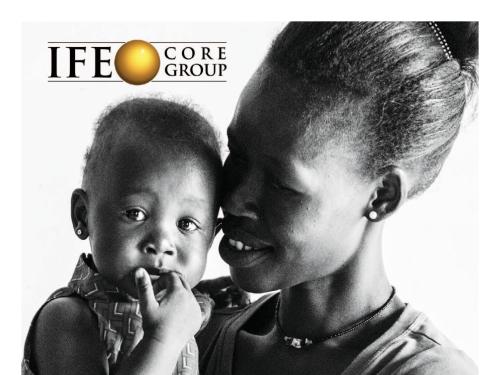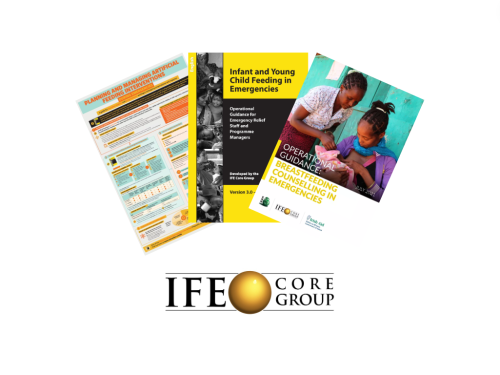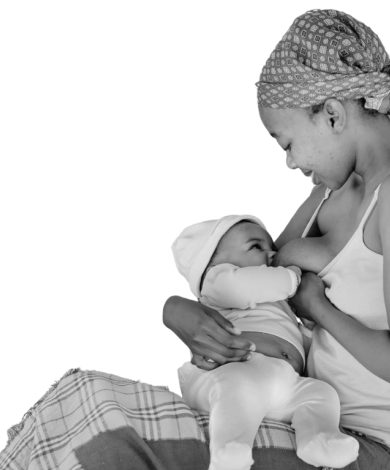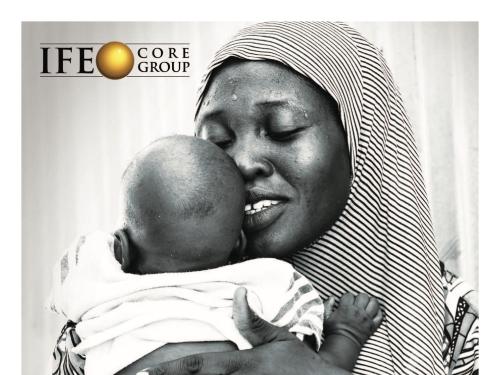What does IYCF-E mean?
Infant and young child feeding in emergencies (IYCF-E) concerns the protection and support of safe and appropriate feeding for infants and young children in all types of emergencies, with the goal of safeguarding their survival, health and growth. It includes supporting the nutritional needs of infants and young children from birth to the age of two and concerns both breastfed and non-breastfed children, as well as the wellbeing of mothers.
IYCF-E protects breastfeeding alongside safe, diverse and locally available complementary foods. It is a cross-cutting field, requiring coordination of multiple areas of expertise, and must be integrated into emergency preparedness and response plans.
Why did we start the IFE Core Group?
In emergencies, child deaths can be two to 70 times higher than the average rate.
For pregnant and lactating women and children from birth to 23 months, nutrition is key to reducing death and illness that accompany emergencies of all kinds. During emergencies, ensuring that infants are exclusively breastfed for the first six months, that breastfeeding is continued for two years or more, and that after six months of age infants are provided with safe and acceptable complementary foods and positive feeding practices, is crucial in safeguarding the health of infants and young children.
The risks of feeding infants something other than breast milk in emergency contexts, particularly for the first six months, are increased because of unclean water, crowded and unhygienic living conditions, and inconsistent supplies in the markets. This can significantly endanger infants' health and can lead to increased illness, malnutrition and mortality.
How we started
The Infant Feeding in Emergencies (IFE) Core Group is a global collaboration of agencies and individuals that formed in 1999 to address policy guidance and training resource gaps hampering programming on infant and young child feeding support in humanitarian contexts. The formation followed on from a key meeting, hosted by IBFAN in Geneva in 1995 which, while recognising the need for the provision of small amounts of breastmilk substitutes (BMS) in emergency situations, identified the need to protect mothers and children from the indiscriminate distribution of BMS.1,2
The IFE Core Group does not directly implement programmes but rather works to develop guidance and resource materials; documents lessons learned and builds capacity to ensure more effective infant and young child feeding (IYCF)3 support in emergency contexts (IYCF-E). The IFE Core Group members bring challenges and issues to the collective membership for peer support and guidance to facilitate rapid application of up-to-date experience in operations and to connect on-the-ground experiences with the development of agency and global policy guidance.
Recent emergencies have expanded the scope of IYCF issues and modified the ways of working in humanitarian contexts. Crises have occurred in more urbanised, middle-income countries where rates of breastfeeding were low (such as Syria), which has necessitated greater consideration and the adaptation of guidance for how to support non-breastfed children and their carers including in camps, transit settings as well as remote support contexts. Evidence shows the effect of stress and trauma (such as due to conflict, GBV, etc.) on IYCF practices and the need for coordination with mental health/psychosocial support and sexual and reproductive health services for infants and their caregivers and may require sensitisation about post-traumatic stress disorder (PTSD), symptoms, and how frontline practitioners can avoid exacerbating PTSD or re-traumatising families when providing direct services.
In late 2017, the IFE Core Group held a three-day meeting to review its functioning and identify future activities, funding needs, responsibilities and capacities. The meeting confirmed the important role the IFE Core Group plays and resulted in the development of an action plan (in 2019) to take forward with a restructuring of the group, and the formation of a number of working groups and the leadership of a Steering Committee. Building on this strengthened sense of direction, the IFE Core Group has prepared this five-year strategy to further clarify and define the group's overall aim and objectives, to better articulate where the IFE Core Group's responsibility lies (and where it ends) and to identify key indicators for measuring the progress and outcomes of the work of the group.
1Infant Feeding in Emergencies, Policy, Strategy & Practice, Report of the Ad Hoc Group on infant feeding in Emergencies, May 1999; Crucial Aspects of Infant Feeding in Emergencies and Relief Situations, July 1996, IBFAN Geneva
2 Ad Hoc Group on infant feeding in emergencies. Field Exchange 1, May 1997. p12.
https://www.ennonline.net/fex/1/adhoc
3 WHO recommends mothers worldwide to exclusively breastfeed infants for the child's first six months to achieve optimal growth, development and health. Thereafter, they should be given nutritious complementary foods and continue breastfeeding up to the age of two years or beyond. The International Code of Marketing of Breastmilk Substitutes and subsequent resolutions (the Code), which aims to contribute "to the provision of safe and adequate nutrition for infants, by the protection and promotion of breastfeeding, and by ensuring the proper use of breast-milk substitutes, when these are necessary, on the basis of adequate information and through appropriate marketing and distribution".
Our objectives
Based on the IFE Core Group Strategy, the Group aims to protect child survival, growth and development in populations affected by emergencies. Through its work, it improves the services received by mothers, caregivers and their children. It safeguards feeding and care of infants and young children in humanitarian contexts by:

Awareness
Improving the awareness of IYCF-E and what is required for timely, appropriate support and to minimise risks during a humanitarian response.
Increasing OG-IFE uptake
Increasing the uptake of the Operational Guidance for Infant and Young Child Feeding in Emergencies (OG-IFE) through integration into relevant national and agency preparedness and response policies, guidelines, procedures and costed plans.
Influence
Influencing progress in the protection, promotion and support of appropriate child feeding and care by mothers, families, care providers and communities.
Find out more about IFE Core Group

IFE Core Group Strategy 2020-2024

IFE Core Group
The Infant and Young Child Feeding in Emergencies (IFE) Core Group's vision is that all feeding and care of infants and young children is safeguarded to support child survival, growth and development, in humanitarian contexts.

